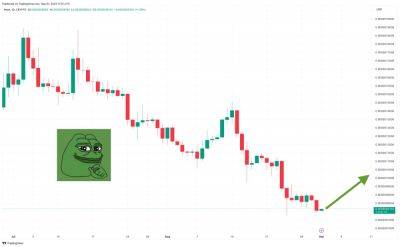How is a centralized exchange pioneering the move toward decentralization? – Q&A with Phemex
In the rapidly changing cryptocurrency landscape, the convergence of centralized exchanges (CEX) and decentralized exchanges (DEX) is emerging as a step toward a more inclusive and efficient financial ecosystem. This integration represents a profound shift that bridges the strengths of both worlds, combining the ease of use and liquidity of CEX with the autonomy and security of DEX.
As these two seemingly disparate paradigms merge, can we expect their harmonious coexistence to reshape how we trade, invest and interact with digital assets?
To explore this topic, Stella Chan, chief marketing officer at semi-centralized crypto exchange Phemex, shared her perspective on decentralization, Phemex’s hybrid management model and the innovative concept of soulbound tokens.
CT: Could you tell us more about the transition of Phemex from a centralized exchange to a hybrid one? What advantages does this bring to your users?
SC: We aim to harmonize the best of CeFi and DeFi. As a CEX, we have advantages such as security, smooth and simple onboarding, an intuitive user interface, deep liquidity and dedicated customer service. These benefits will be maintained, while we add decentralized features like PhemexDAO governance, on-chain staking and AMM rewards, and an on-chain lending protocol.
Basically, we’ll be combining decentralized decision-making with centralized efficiency to optimize our users’ experience on Phemex.
Source: Phemex
CT: As one of the first major exchanges to use soulbound token (SBT) technology, how has this set Phemex apart? How would you describe this technology to someone who is new to it?
SC: The concept of a soulbound token is straightforward –– think of it as an NFT that cannot be transferred. It exists on-chain
Read more on cointelegraph.com






















